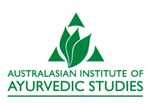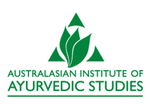What is Herbal Medicine?
Rooted in the world's oldest healing systems like Ayurvedic medicine and Traditional Chinese Medicine (TCM), herbal medicine is a type of complementary medicine that is used to treat and prevent a variety of health conditions holistically. It realigns the life force within the human body with that of the person's surroundings to ensure that the various organ systems in their body function optimally.
Herbal remedies can be dispensed raw, cooked, or brewed as tea before being administered to an individual. It can also be administered in capsules, powdered form, or as tinctures, or it may be an ointment or cream-based for topical application. Each of the countless herbal formulas is intended for a specific purpose, so one needs to consult a certified herbalist or naturopath to find out which herbal products are suitable for their health complaints.

Why Study Herbal Medicine?
A herbal medicine course will teach you how to develop and use natural medicines based on the innate healing power of plants to enhance your health and the health of others. Not only will you learn about an array of herbs and their healing properties, but you will also gain immense information that will guide you in formulating an array of herbal products.
The knowledge that you gain will broaden your career horizons and enable you to work in whichever field that you choose. You can work in a naturopathic clinic, open your own herbal shop, or even engage in research to improve the chemical structure of pharmaceutical products with medicinal herbs, allowing them to treat serious health issues or chronic conditions affecting public health without the use of surgery.
What Does It Take To Study Herbal Medicine or Become a Practitioner of It?
Herbal medicine may not be a difficult subject to grasp because the tools needed to practise it are provided by nature. That's why it's one of the most common complementary medicines. Still, you will want to learn about its history and philosophy to succeed in this field of study. A solid understanding of human physiology will come in handy as you examine the effects of various medicinal plants and herbal treatments on various tissues and organs in the body.
Additionally, being analytical and observant will also help you grasp herbal medicine concepts while conducting research regarding the different ways to formulate herbal remedies or dietary supplements based on the physiological and energetic needs of the human body.
Course and Study Options for Herbal Medicine
The principles and applications of herbal medicine can be learned through a short or long course, whether you study them inside a classroom or online. If you're simply curious about what the modality can do for you, you could attend a weekend workshop or seminar first before diving into a comprehensive course. See how it goes, and if it somehow draws your interest, then you can proceed to complete a bachelor's degree.
Several complementary medicine courses are bundled with herbal medicine as an elective subject. Take, for instance, naturopathy, Traditional Chinese Medicine, Ayurveda, nutrition and acupuncture, to name just a few. These courses cover a wide range of natural remedies that can be used in conjunction with herbal therapy. The training program that you choose should depend on what you wish to do or become after graduation.
If you want to focus solely on herbalism, as well as the chronic conditions it can help with, completing a Bachelor of Health Science in Western Herbal Medicine is the ideal option. You can further your studies with a master's degree to develop your clinical practice later on.
How to Choose a School or Course in Herbal Medicine
If you're unsure where to take formal training in herbal medicine, go back to the list of your goals. Do you want to obtain a qualification that allows you to practise herbal medicine professionally, or do you want to use the modality to improve your personal health and your family's?
Your purpose, as well as the list of course providers at the top of this page, will steer you in the right direction. Go through their offerings to determine which ones tick all the boxes on your checklist. Once you have narrowed down your options, take the time to contact each course provider to get more details about their course outline, tuition fee, delivery methods and available payment plans or student loans.









